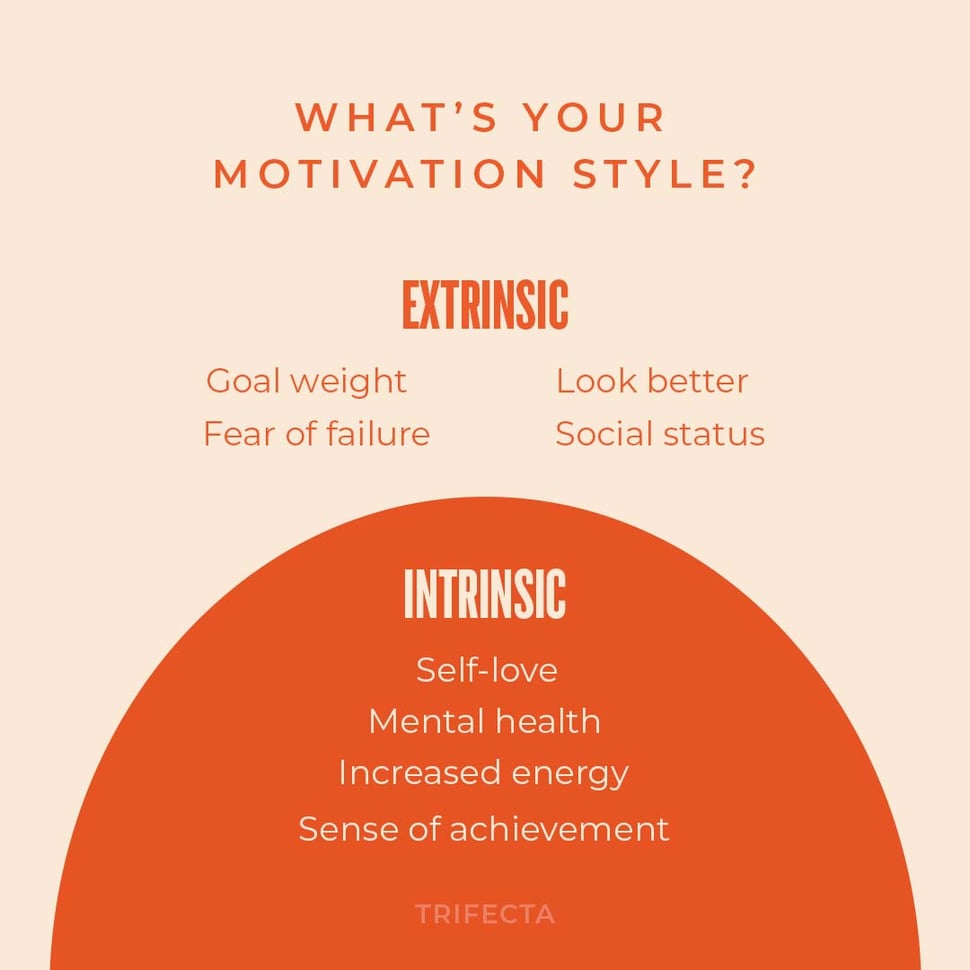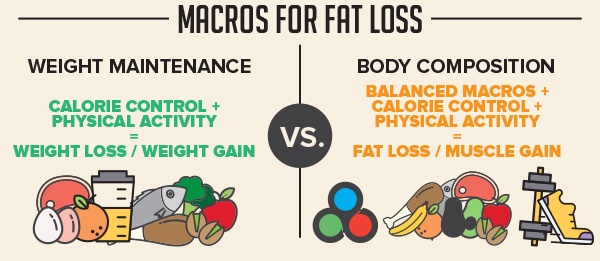Are you wondering what to do when your weight loss slows or stops completely? You may feel like the weight just "fell off" initially and now you can't get the scale to budge. This is often referred to as the "weight loss plateau," and can be a major pain point for dieters.
Beating a weight-loss plateau and finding long-term weight loss success is challenging but can be done. You know you’re on the right diet when it doesn’t feel like a struggle to follow week after week—in other words, one you enjoy and can stick to.
Dieting for weight loss is often simplified as burning more calories than you're consuming, however, many factors can affect what you're actually burning.
What is a Weight Loss Plateau?
Weight loss plateaus are when the scale stays stagnant at a consistent weight (or within a few pounds).
Plateaus are very common when dieting, especially after an initial rapid weight loss. The first thing to know is that you’re not alone, although that probably doesn't make it any less frustrating.
When you start a weight loss plan, initial weight loss often happens quickly.
This can be for a number of reasons:
- You initiate multiple strategies at once: changing your diet and increasing your activity.
- Your carb and sodium intake are more controlled and you are losing excess water weight attached to glycogen and sodium.
- You’re breaking any unhealthy habits that may have been sabotaging you in the past.
The bottom line is that weight loss is not linear. It's common for weight to trend only down when you begin losing weight and then later to have more fluctuations.
1fcf.png)
How Long is Considered a Weight Loss Plateau?
Weight fluctuations are normal within the weight loss journey. A plateau that lasts a week or two probably isn’t truly a plateau. A plateau that lasts 3-4 weeks is likely more of a true weight loss plateau.
Studies reflect that a weight loss plateau often happens after about 6 months of being in a calorie deficit (1), however, this can vary greatly from person to person.
Weight fluctuations can be contributed to a variety of factors. First of all, when it comes to weighing yourself, make sure you are choosing a consistent time, wearing the same clothes (or none), and having a quality scale.
Other factors that will contribute to weight fluctuations include your sodium, carbohydrate, and water intake which may be influencing water retention (especially if they vary significantly from day to day).
How to Overcome a Weight Loss Plateau
When it comes to dieting, there are a few things you may want to keep in mind before starting the process of planning, grocery shopping, and meal prepping. However, these are great checkpoints to refer back to in the midst of dieting to evaluate your progress and efficacy of the approach to your goals.
Once you've made sure that your motivation is in alignment with your diet and goals we can try strategies to disrupt your plateau such as reverse dieting, changing your macro split, mixing up your fitness routine, stress management, and sleep hygiene.
Not sure what your macro split should be? Find out now with this simple calculator.
Check-in With Your Body
Before you jump into making changes to your diet and fitness routines with the goal of losing weight, it's important to check in with your body. There's a chance the plateau is serving as a notification to change your overall goal and approach. Here are some things to consider:
- How have I been feeling lately?
- How do I want to feel in 6 months?
- How would I describe my weight loss journey up until this point?
- What has been working?
- What hasn't been working?
Rethink Your Goals
If you feel like you’re stuck in your progress, it’s a good idea to take a look at what your goals are and evaluate how you’re measuring your progress.
It’s easy to set unrealistic goals or goals that are too broad, especially if you’re earlier on in your health journey and feel like you have a lot you want to change or improve upon. Take a look at smart goals to break down the goal-setting process to set yourself up for success.
Rethink Your WHY

Why are you dieting? Try to go beyond “ to lose weight” and ask yourself some tougher questions. Some ideas may be to improve your overall health, achieve certain aesthetics for an event, increase your energy levels, train for a fitness event, etc.
Rethinking your why can help you evaluate whether you are really plateauing or if the way you measure your success isn't matching up with your why.
For example, if your why is to support your training efforts for a marathon, the scale may not be moving, but your training times are getting faster and you’re recovering more quickly from your workouts.
If you’re only looking at the scale you wouldn't see that you ARE supporting your goals and you’re likely on the right track. You may just need to circle back to the topic above and reframe your weight-specific goals to a performance-specific goal.
Rethink Your Diet
Most conventional "diets" aren't designed to stick to forever. That's why you need to find the plan or style of eating that you enjoy and can stick to long-term.
If you love grains but are trying to eat paleo, that most likely won't be a diet that you can stick to long-term. Establishing a pattern of restricting can lead to binging and restricting, yo-yo dieting, and weight fluctuations.
Finding a diet plan built for you might seem difficult but it's easier than you think. Take this quick quiz to get a diet recommendation based on your lifestyle, goals, and food preferences.
Rethink How Long You Should Be Dieting
The term diet can have many meanings, but in this context, we're often referring to a diet for weight loss utilizing a calorie deficit. Living your life in a calorie deficit can leave your energy levels low and hurt your performance, especially if you are in too big of a deficit and/or for a prolonged period of time.
How long should you stay in a calorie deficit? This topic is still up for debate and will vary from person to person.
One thing is for certain, you do not want to live most of your life in a caloric deficit. Restricting your calories for a long period of time can cause your metabolism to adapt to this lower number of calories, ultimately defeating the purpose of your deficit. The goal is to be in a caloric deficit only as long as you need to be or until you reach your goal weight.
Aside from being in a deficit, if your goal is to make general healthy diet changes within calories to maintain your weight, then create habits and follow basic guidelines that you can adapt when needed. This doesn’t mean every day has to look the same or that you can't have flexibility in the foods you eat.
This is why finding a plan that works for you is essential to sustainable weight loss.
5 Ways to Beat a Weight Loss Plateau
Wondering what to do when you feel stuck after you’ve considered all of this? Maybe the scale's not moving or you're seeing a dip in your performance or energy. If you’ve already reconsidered your goals, your diet choice, your why, and they still seem to be in line then here are some things you can do to break a weight loss plateau.
1. Reverse Dieting
Reverse dieting can be helpful when you've been dieting for an extended time and do not want to or shouldn't continue cutting calories. With reverse dieting, you very slowly increase your daily calorie intake to promote weight maintenance and stimulate your metabolic rate. Adding calories back too quickly can result in unwanted weight gain so this is why it's important to do it gradually.
Not only can reverse dieting help fire up your metabolism, but it can also help reduce hunger and fatigue, giving you more energy to fuel your daily activity. Research is still limited on reverse dieting so it's up to you to decide whether it's a good fit or something you want to try.
2. Change Your Macro Split
Getting your macro split right can be a bit of a balancing act, especially if you’re newer to tracking your macros. Finding what works for you is key but you may find what once worked, doesn't work forever. This is because our lifestyle, bodies, metabolism, etc, is always changing.

Trying carb cycling can be a helpful way to break up the monotony of your macros while helping you with your fitness goals at the same time. Carb cycling changes your carb goals depending on your daily output and fitness needs. Although there's still a lot of research that needs to be done to determine how beneficial carb cycling is for weight loss, it's been an effective tool for some.
If you've hit a weight loss plateau, are struggling to get through your workouts, or have trouble with managing your carb intake, carb cycling might be something to consider.
3. Mix Up Your Fitness Routine
If you:
- Struggle to find consistency with an exercise routine
- Coast through your workouts without breaking a sweat
- Find yourself dreading every workout or lacking the energy
It's time to rethink your fitness routine.
Changing your workout routine can help stimulate your metabolism and muscles in new ways, bringing new light to your weight loss efforts.
Try finding something you enjoy and look forward to doing. This can be going for a walk or hike with a friend, joining a new online fitness platform, or signing up for dance lessons. Changing up your routine is a great way to stay motivated and keep fitness fun and effective.
4. Adopt Stress Management Techniques
If you're doing everything right with your diet and exercise routine but not managing your stress you may be sabotaging your weight loss goals.
Stress can affect hormones and sleep which in turn impacts your metabolism, nutrition, and fitness (2).
Finding strategies to manage the stressors in your life is a critical part of health and weight loss. Taking time for a 5-minute walk outside, a quick meditation, practicing mindfulness, or a quick phone call to a loved one can be a great start to reducing stress.
5. Get Better Sleep
Establishing a consistent sleep schedule is important for your nutrition, fitness, and overall health. Ritualizing your sleep routine can be a great way to find that consistency. There are certain practices that have been proven to positively impact sleep, including:
- Creating a bedtime ritual
- Avoiding screens and blue-light at least two hours before bedtime
- Sleeping in a cool dark environment
When it comes to food, you'll have to find the sweet spot between making sure that you're not eating right before bed but also aren't hungry, as both scenarios can make it harder to fall and stay asleep.
Did you know there are actually some foods that can help promote sleep?
Get more tips, tactics, and tools to help you lose weight and keep it off.
Written by health and nutrition experts, the Ultimate Guide to Weight Loss and Healthy Living gives you everything you need to reach your goals. Download your FREE copy today!


